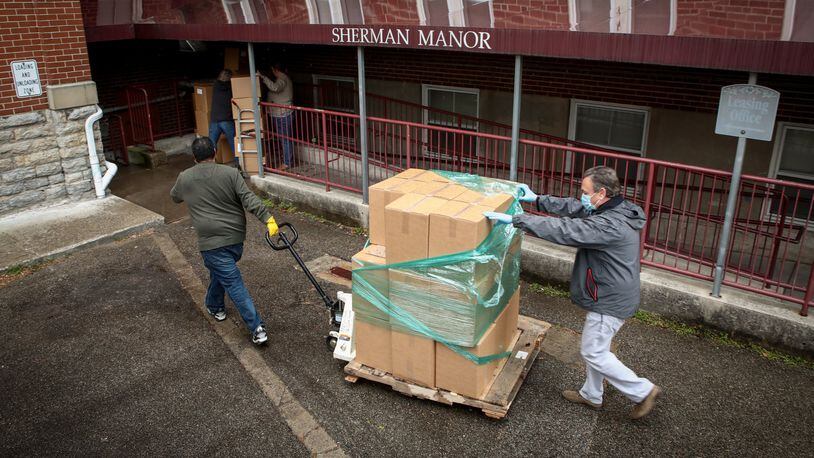“You’re going to say even with this levy passing you’re losing, you’re in deficit spending,” Rasmus told the county commissioners Monday. “The first thing we need to do before we can talk about anything else is to hold onto this levy.”
The MHARS Board oversees the county mental health and addiction system and provides funding, strategic planning, quality assurance and needs assessments for outside service providers. Rasmus said about one in every 10 residents (35,000) were “touched by our services” last year compared to about 28,000 in 2018. The opioid epidemic increased the numbers.
RELATED: How Butler County is changing to help those most vulnerable in coronavirus shutdown
A levy passed in 2006 because the existing 0.5-mill levy that generated $1.5 to $2 million wasn’t covering expenses has been renewed since. It covers about half the board’s budget and is the most “flexible” revenue source since many state and federal grants limit what the dollars can be used for. Those grants are also time-limited.
“This money is the most flexible of all the money we get,” Rasmus said. “The money we get from the state and federal government is earmarked to special populations like women’s treatment, K-through-12 education, toward prevention, so there’s a lot of strings attached.”
When the mental health and addiction services merged in 2015 it was thought the mental health levy was restricted to mental health services. Butler County Prosecutor Mike Gmoser issued an opinion that addictions are classified as mental health issues so the funds could be spent for both.
The MHARS levy expires next year but the board needs to also ask for additional money soon. Rasmus said if the levy fails, it can try again next year, but that doesn’t give them much cushion.
“When we hit the spring of 2022 we are at two months of reserves, which is below the board three-month minimum policy and we’d have to start cutting programs,” Rasmus said.
Rasmus said some believe there is going be a “behavioral health surge” soon due to the coronavirus pandemic that is also taxing resources.
“If it comes back and we need to stay in place again, there could be stress, anxiety, suicides, overdose increases,” he said. “We need to respond to those quickly in a fast fashion.”
Commissioner T.C. Rogers said a lot of residents may ask “what does this do for me.” Rasmus replied about 25 percent or 100,000 residents likely suffer some type of disorder but only about half seek services. His board has outreach, education and “readiness to be there for folks when they need us.”
The Council on Aging manages the $10 million elderly services levy that provides programming so seniors can stay at home as long as possible, and the agency served 4,121 clients last year. It pays for services including transportation, meals, mental health, adult day services, housekeeping and repairs. The Elderly Service Program costs about $294 monthly, compared to $4,340 for nursing home care.
Ken Wilson, vice president of program operations, told the commissioners officials use other funding sources like insurance and Medicaid before tapping into levy funds.
“It is designed to keep seniors independent in their home where they’d like to be. It enables them to stay at home and be independent with dignity in the homes that they are familiar with, and with family and community they want to be with,” Wilson said. “It prevents costly and unnecessary nursing home placements which can save taxpayer money.”
The elderly services levy fund will have an estimated $10 million beginning balance for 2021.
During the coronavirus pandemic so far, the agency has provided 2,758 emergency 14-day meal kits, transitioned 462 congregate meal clients to home delivery and established a hotline signing up 100 new clients in six weeks.
The commissioners must approve placing the levies on the ballot.
The uncertainty about how November’s election will be handled after the all-mail-in primary election led to more than 300 ballots being delivered late and not counted has concerned some, including Rasmus.
“It’s a different approach to the election and you don’t know how many people are going to get out and what that means,” Rasmus said. “It’s unpredictable.”
About the Author
